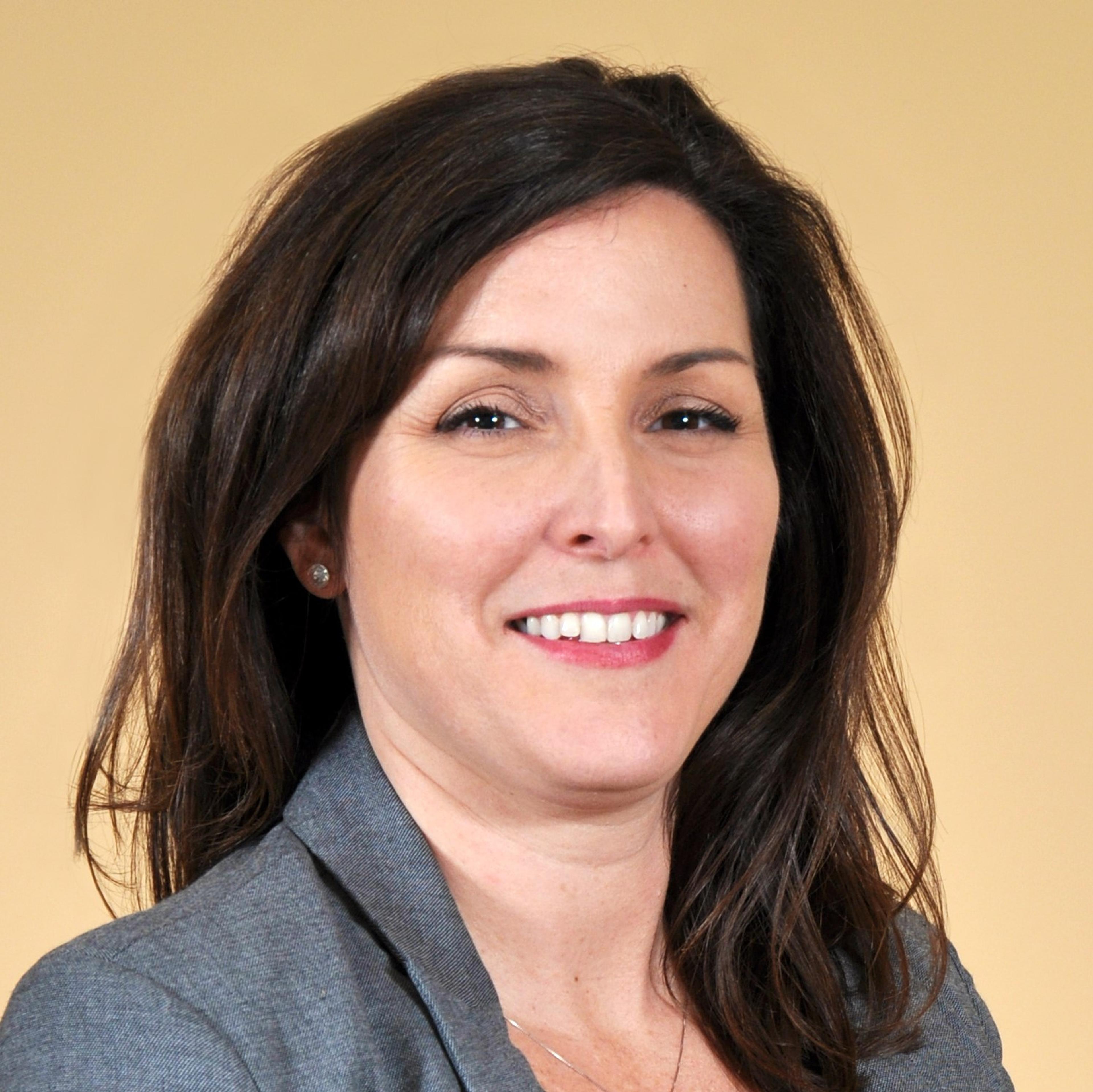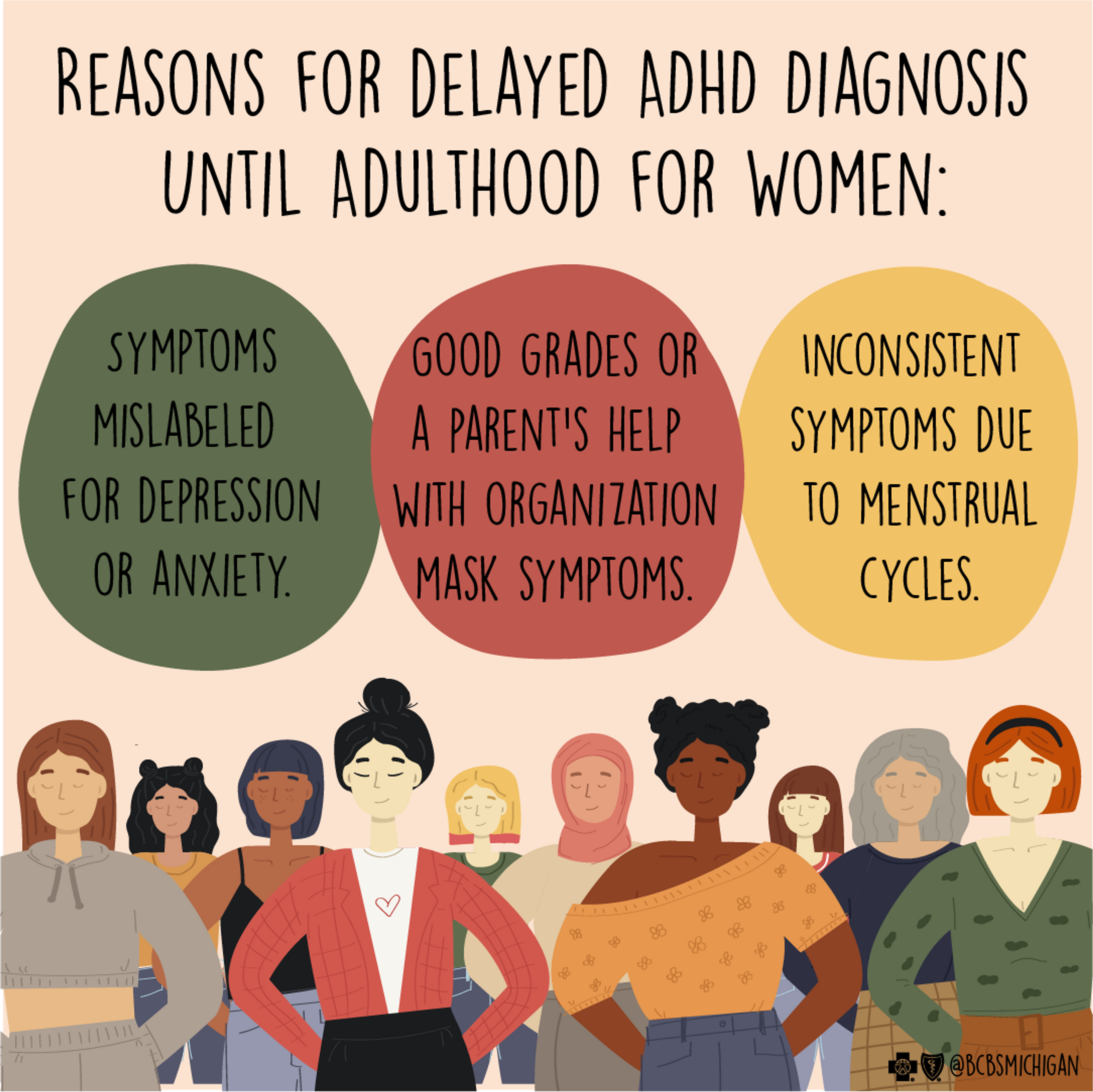Diagnosis of ADHD Often Delayed Until Adulthood for Women

Dr. Amy Milewski, M.D.
| 3 min read
Dr. Amy Milewski, M.D., is vice president of clinical partnerships and associate chief medical officer at Blue Cross Blue Shield of Michigan. She is a board-certified family medicine physician. She serves on the State of Michigan Certificate of Need Commission. She graduated from Northeast Ohio Medical University and completed her residency at St. John Providence Health System in Southfield, Michigan. In 2017, she completed her MBA with a focus in medical management at the University of Massachusetts Amherst.

Attention-deficit/hyperactivity disorder, or ADHD, is one of the most common conditions in school-aged children in the U.S. This neurodevelopmental disorder is characterized by inattentiveness, an inability to focus on tasks like schoolwork, and fidgety behavior among other physical and mental indicators. These neurological issues can last into adulthood.
For an increasing number of women, ADHD is not diagnosed until adulthood. Women’s symptoms have often been mislabeled as depression or anxiety as they dealt with feelings of restlessness or difficulty concentrating, and instead were left with untreated ADHD. As more is becoming known about this issue, diagnosis and treatments are evolving.
ADHD by the numbers
This issue is getting increased scrutiny as more children and adults in the U.S. are being diagnosed with ADHD each year. In the 1980s, one in 20 children were diagnosed with ADHD. Now, that number is closer to one in nine, with an estimated 6.1 million children ages 2 to 17 diagnosed with ADHD in this country. Of those, 3.3 million are between the ages of 12 and 17.
Why has the caseload ballooned in the last four decades? Some of it has to do with parents, educators and pediatricians becoming more aware of the symptoms.
A study published in the Social Science and Medicine journal laid out five factors behind the increase:
- The internet: People are more tech-savvy than ever before. They search out answers to medical questions online, gather information, then talk about it with their doctors, often leading to a faster diagnosis.
- Advocacy groups: ADHD support groups for children, parents and adults with the disorder reach across the globe, raising awareness.
- Marketing: Drug companies that make ADHD medications are creating visible campaigns for their products.
- U.S.-style treatments: While non-U.S. psychiatrists have long favored talk-based treatment methods, doctors in the U.S. have relied more on biological or drug-based treatments.
- Broader definition: The U.S. medical community now defines ADHD in much broader terms than other areas of the world, bringing more people under the umbrella of this diagnosis.

ADHD presents differently
Some of the gaps in ADHD diagnosis are linked to the fact that the disorder presents differently in boys than girls, and in adults compared to children. This has led to boys being diagnosed with ADHD at more than twice the rate of girls.
Some reasons for the disparity, according to the group Children and Adults with Attention-Deficit/Hyperactivity Disorder (CHADD), include:
- Boys who have trouble sitting still in class and who talk loudly get more negative attention than girls who may appear inattentive
- Girls display symptoms that look more like anxiety
- The changing intensity of symptoms during a girl’s menstrual cycle can delay a diagnosis because the symptoms may be seen as inconsistent
Why ADHD diagnosis can be delayed until adulthood for women
These same gaps in diagnosis follow girls into adulthood, researchers believe. Under the old diagnostic methods, a person had to show signs of ADHD as a child if they were going to be diagnosed with the disorder later in life. But new diagnostic definitions no longer require that, and medical professionals are more open to the idea that people can develop ADHD later in life.
Other reasons women aren’t diagnosed with ADHD until adulthood can include:
- Good grades or a parent’s help with organization can mask symptoms
- Adult ADHD is a more complex disorder than childhood ADHD and needs a more thorough diagnosis
Whether a woman with ADHD is diagnosed as an adult, or is facing a continuation of symptoms from childhood, it is important for her to work with a health care professional to outline and follow a consistent treatment plan.
Amy McKenzie M.D. is associate chief medical officer at Blue Cross Blue Shield of Michigan. For more health news and information, visit MIBluesPerspectives.com.
Photo credit: Getty Images
Related:





